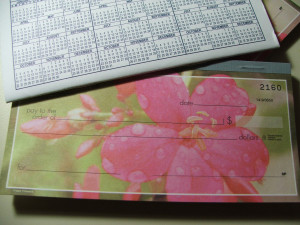Check Offenses
Issuing bad checks in Virginia (Va. Code §18.2-181) can be a misdemeanor or a felony, depending on the value represented by the check. The crime of issuing bad checks in Virginia is knowingly making or attempting to pass a bad check with intent to defraud. The offense is committed by making, drawing, uttering, or delivering a check with knowledge that the account has insufficient funds, writing a check on a non-existent account, or writing a check on an account that has been closed. Issuing a bad check is considered Larceny in Virginia.
For more information on Larceny in Virginia and it’s penalties, click here.
An offender can also be charged with passing bad checks in Virginia if he or she issues 2 or more checks within 90 days to the same person, from the same account, with a combined value of $1,000 or more (Va. Code §18.2-181).
Another form of issuing bad checks in Virginia is covered in Va. Code §18.2-182. This statute criminalizes issuing bad checks in Virginia by businesses. The offense is committed when a business writes a check with insufficient funds and intent to defraud in payment for wages or labor. If the value of the check is less than $1,000, it is a misdemeanor. If the value is more than $1,000, the offense becomes a felony.
For more information on Issuing Bad Checks by Businesses in Virginia under Va. Code §18.2-182, click here.
Proof of Issuing Bad Checks in Virginia
An offender can be convicted of issuing bad checks in Virginia under Va. Code §18.2-181 if he:
- makes, draws, utters, or delivers a check, with
- intent to defraud, and
- has knowledge of insufficient funds.
Make, Draw, Utter, Deliver: Writing a bad check with intent to defraud and knowledge of insufficient funds is enough to convict an offender of issuing bad checks in Virginia under Va. Code §18.2-181. An offender can be convicted without even trying to pass the check. However, passing a bad check with knowledge of insufficient funds and an intent to defraud is uttering and is another way to violate this statute. The offense can be committed by someone other than the person who wrote the bad check if that person does one of the acts mentioned with knowledge of insufficient funds and intent to defraud.
Intent: The Commonwealth needs to prove intent to defraud to convict an offender of issuing bad checks in Virginia. The crime has been committed when an offender makes, draws, utters, or delivers a check with intent to defraud and has knowledge of insufficient funds. The Commonwealth can prove intent to defraud with proof that the offender made the check, the check was returned, the drawer was notified of the insufficient funds, and the check was not paid in full within 5 days of the insufficient funds notice. However, the Commonwealth can still convict an offender even if the check has been paid within the 5 days if they can prove that the drawer made the check with an intent to defraud.
Penalty for Issuing Bad Checks in Virginia
Issuing bad checks in Virginia is considered Larceny. Issuing a bad check is a Class 6 felony in Virginia if the value represented by the check is more than $1,000. It is punished with up to 5 years in prison and a fine up to $2,500.
Issuing two or more bad checks totaling more than $1,000 within 90 days to the same person and drawn from the same account is a felony under Va. Code §18.2-181.1. It is punished with up to 5 years in prison and a fine up to $2,500.
Issuing bad checks in Virginia under Va. Code §18.2-181 is a Class 1 misdemeanor if the value on the check is less than $1,000. It is punished with up to 12 months in jail and a fine up to $2,500.







